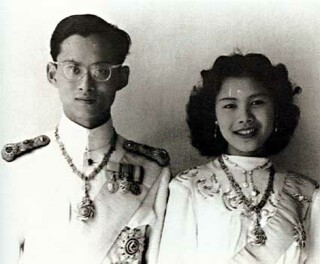The King's Silence
Joshua Kurlantzick · The Thai Royal Family
As the situation in Bangkok worsens, why hasn’t King Bhumibhol Adulyadej stepped in to mediate between the protestors and government? During ‘Black May’ in 1992, after the army fired on demonstrators and killed at least fifty people, the king called the protest leader, Chamlong Srimuang, and the military dictator, Suchinda Kraprayoon, to his palace. Shortly afterwards Kraprayoon resigned, paving the way for elections.
The semi-official explanation for the 82-year-old king’s absence this time around is his ill-health. He’s hardly left the hospital in months, though officials are cagey about what’s wrong with him. And he is well enough to have received the prime minister, Abhisit Vejjajiva, at his hospital wing.
More likely, the king has realised that if he tried to intervene this time around, the demonstrators wouldn’t listen to him. In 1992 and 1973, the protestors (mostly students and middle-class professionals) as well as the government were drawn from Bangkok’s elite. But the red-shirt protestors, drawn mostly from Bangkok’s working-class and the rural poor of the north and northeast, aren’t so reverent of the monarchy. Since 2006, when he essentially sanctioned a coup against the populist prime minister Thaksin Shinawatra, the king has weighed in on the side of the Bangkok elites against the rural poor. Acting on his tacit instructions, the courts outlawed two successors to Thaksin’s party and, earlier this year, seized many of Thaksin’s assets. I was in Thaksin’s home base earlier this spring, and found a level of open distrust for the monarchy among red-shirt supporters I’d never seen before in Thailand.
The other prominent members of the royal family, Queen Sirikit and Crown Prince Maha Vajiralongkorn are, if anything, more militant and pro-elite than the king. They made a widely publicised visit to the bedside of a soldier wounded in the violence of 10 April. The queen has also encouraged pro-government citizens in the war-torn south to arm themselves and form militias. Relying on the monarchy rather than developing more democratic political institutions has in the long run created more problems than it has solved.
